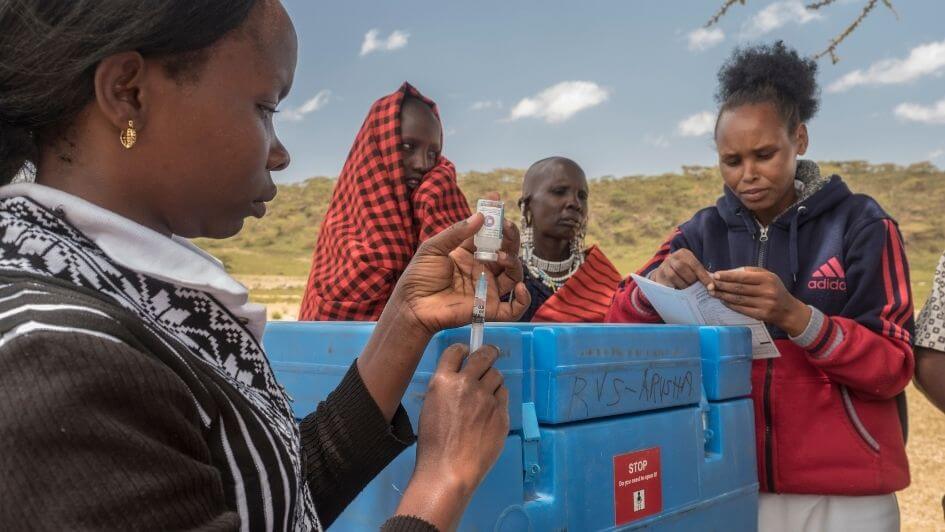Beyond energy
In the beginning of March last year when countries around the world were starting to go into lockdowns and restrictions of varying measures, little did we know that well over a year later, we would still be struggling to cope with the impacts of COVID-19.
But at the time, recognising an urgent need to upgrade health infrastructure in rural India, Power for All brought together a coalition of Indian organizations to publish an open letter calling on the government to solarize close to 40,000 public health facilities in rural India that do not have access to electricity. An even greater number of health facilities face unreliable connectivity. This severely impacts the quality of healthcare being delivered.
The Coronavirus pandemic and the looming health crisis brought the energy and health sectors together to engage in a meaningful way. Over 60 percent of the organizations who joined the coalition were from the health sector signalling a shift in the way the ‘beyond energy access’ conversation was now being brought to the forefront for other sectors as well. The solution of deploying decentralized renewable energy (DRE) technologies to power key rural development outcomes that was earlier largely a narrative of the energy sector was now being recognised by health care professionals as urgent and required.
While at present India’s health sector is still reeling under the devastating second wave of the virus and requires urgent support and attention, in the long term, upgrading the overall health infrastructure powered by decentralized renewables would improve the quality of health access for over millions of people in rural regions of the country who currently are served by unelectrified health facilities. This includes reliable electricity, robust medical appliances, effective cold chain facilities for critical medicines and vaccines -- backed by enabling policy action, financial mechanisms, and operational support required to make this happen.
Upgrading rural health infrastructure would also help address some of the inequities in our healthcare system that have been highlighted by the ongoing vaccine rollout. Based on successes and lessons learned from India, we are engaging with health sectors in Zambia and other African countries faced with similar challenges.
Beyond boardrooms
Over the last year or so, most of you reading this would have attended more webinars, online conferences, and Zoom meetings than you care to count. While virtual events are not new, the scale and frequency of these gatherings have, in effect, brought more people together and made our world smaller. In-person gatherings are often restricted by the geographical proximity of participants -- speakers, panelists, as well as attendees. Online gatherings, on the other hand, remove those restrictions and encourage greater participation.
While ‘Zoom fatigue’ has been a very real phenomenon that has set in, there is also now a stronger recognition that something like the scale and impact of COVID-19 could not be dealt with by a few organizations, but required support from every corner. This has pushed further collaboration and greater inclusiveness in the international development community. And virtual spaces have aided this process.
In Uganda, restrictions on public gatherings meant that stakeholder consultations -- a prerequisite for policy formulation -- had to be moved from district town halls to virtual spaces for the first time. This was initially a difficult change for many. But in time, several government officials who were initially apprehensive about virtual meetings and who preferred discussions at their office boardrooms came around to appreciating the convenience and ease that virtual meetings brought about. We were also able to include a wider range of stakeholders from the energy access and food systems nexus, bringing them together to discuss a spectrum of issues impacting them. Several meetings and discussions later, it was realised that much more had been achieved via online meetings than might have been possible through in-person gatherings, including the development of policy briefs and draft action plans to address key barriers in using distributed renewable energy solutions for powering agricultural value chains.
Beyond partnerships
In the coming year, working with partners across Asia and Africa, Power for All aims to create a platform for greater coordinated peer-to-peer learning and knowledge sharing among practitioners and other stakeholders working at the nexus of distributed renewables and development, aimed at advancing the case for off-grid clean energy as a partner to governments, donors, and companies seeking to move countries beyond access by sharing research, communications, and action.
At Power for All, we believe in moving beyond just partnerships and tapping into the power of effective collaboration -- across sectors and across regions -- through global communities of action creating networks and linkages between a wide range of stakeholders. Advancing the growth of clean energy technologies will accelerate the pathway towards achieving several Sustainable Development Goals (SDGs) that will serve communities -- largely rural and agrarian, often with marginalized women and youth -- by offering new livelihood opportunities and jobs; and governments, by demonstrating viable solutions for resource-efficient agriculture and food value chains, overall integrated development, and a just energy transition.
